In advance of the of the celebration of International Dictionary Day, the North West Department of Culture, Sports and Recreation, in collaboration with the Pan South African Language Board (PanSALB), organised a Lexicography Awareness campaign on Tuesday, 15 October.
Lexicography is the discipline of compiling, writing and editing dictionaries. It involves thorough observation of language and the careful process of recording and organising words and their meanings. International Dictionary Day is globally celebrated on 16 October, commemorating the prominent American lexicographer, Noah Webster.
The campaign, which honoured the brilliant minds of lexicographers, included stalls on the Potchefstroom Campus of the North-West University (NWU) representing several national lexicography units that work together to promote and strengthen all official indigenous languages of South Africa.
The lexicography units form part of the South African National Lexicography Units, and their mandate is to ensure that every child has access to a monolingual and bilingual dictionary in their mother tongue.
Throughout the campaign, students constantly visited the stalls, asking questions about dictionaries, while the stall representatives eagerly shared their knowledge.
South African National Lexicography Units (SANLUs)
· Each of the National Lexicography Units is based in a geographical area where their language predominates, for example Sefela Kgobokgobo, which is based in Mahikeng. This is to ensure participation and collaboration with institutions of learning at all levels of education.
· The constitutional mandate states that all languages must be developed equally, and no language may be advantaged over another.
· NLUs cooperate with language departments at tertiary institutions, for example Sefala Kgobokgobo works with the NWU Language Directorate and the South African Centre for Digital Language Resources (SADiLaR).
· They serve as hubs to enhance mother-tongue instruction at all levels of education.
· The NLUs elevate the status and advance the use of the official indigenous languages, creating a platform that promotes increased multilingualism to promote national unity, linguistic and cultural diversity.
· NLUs intend to initiate actions in support of non-official indigenous languages in consultation with specialists in these languages.
· Nonindigenous mother-tongue language speakers who wish to learn an indigenous language are also accommodated.
The North West Department of Arts, Culture, Sports and Recreation and the PanSALB aim to promote multilingualism as a national resource to develop previously marginalised languages.
In the case of sign language, the North West Department of Arts, Culture, Sports and Recreation wishes to develop awareness programmes on South African Sign Language to ensure access to information by deaf people.
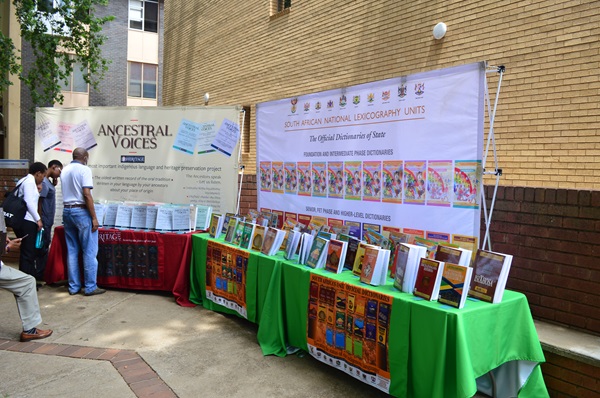
Dictionaries compiled by the editors of the lexicography units throughout the country, catering for all eleven the official South African languages.
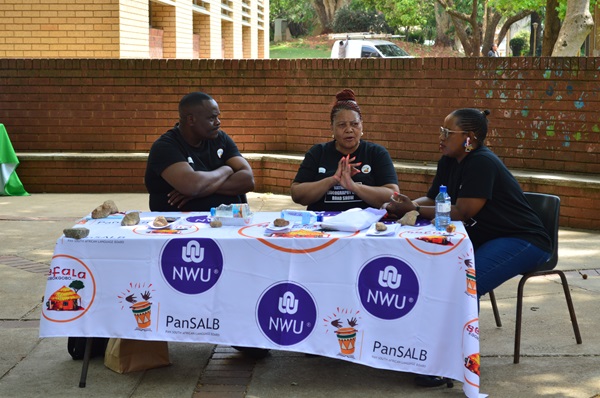
Editors-in-chief, from the left, are Dr Hlengiwe Mashele (Xitsonga Lexicography Unit), Dr Sponono Mahlangu (Ndebele Lexicography Unit), and Bandile Sibiya, a Ndebele lexicographer.
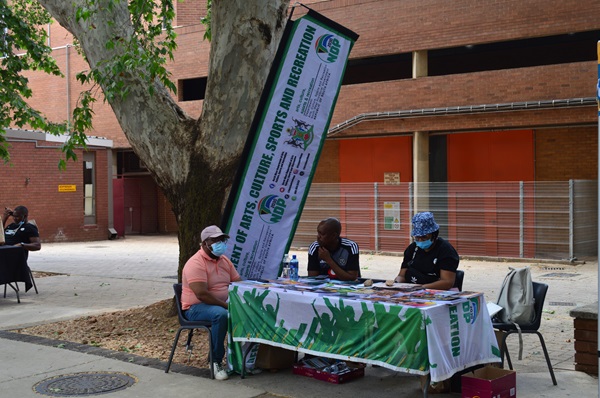
The North West Department of Arts, Culture, Sports and Recreation stall.
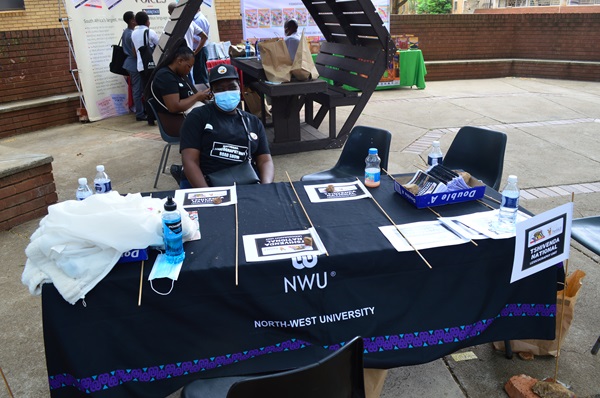
The Tshivenda Lexicography Unit stall.
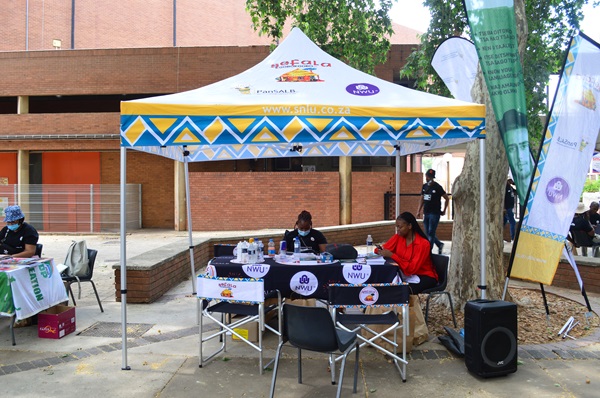
The Setswana National Lexicography Unit (Sefala) Kgobokgobo.
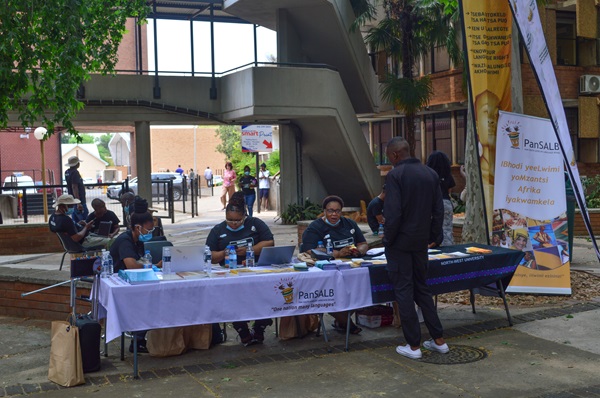
Colleagues from the Pan South African Language Board in Lover’s Lane on the Potchefstroom Campus.
